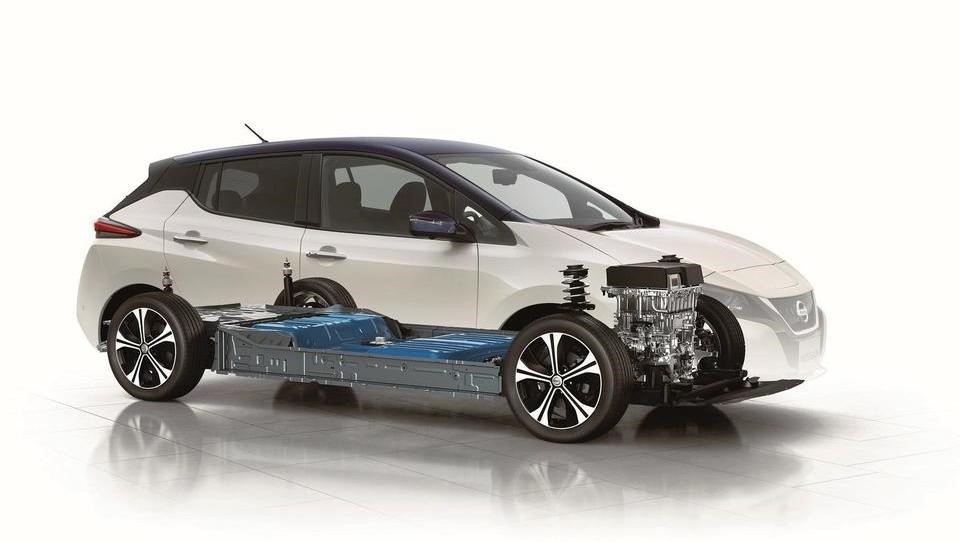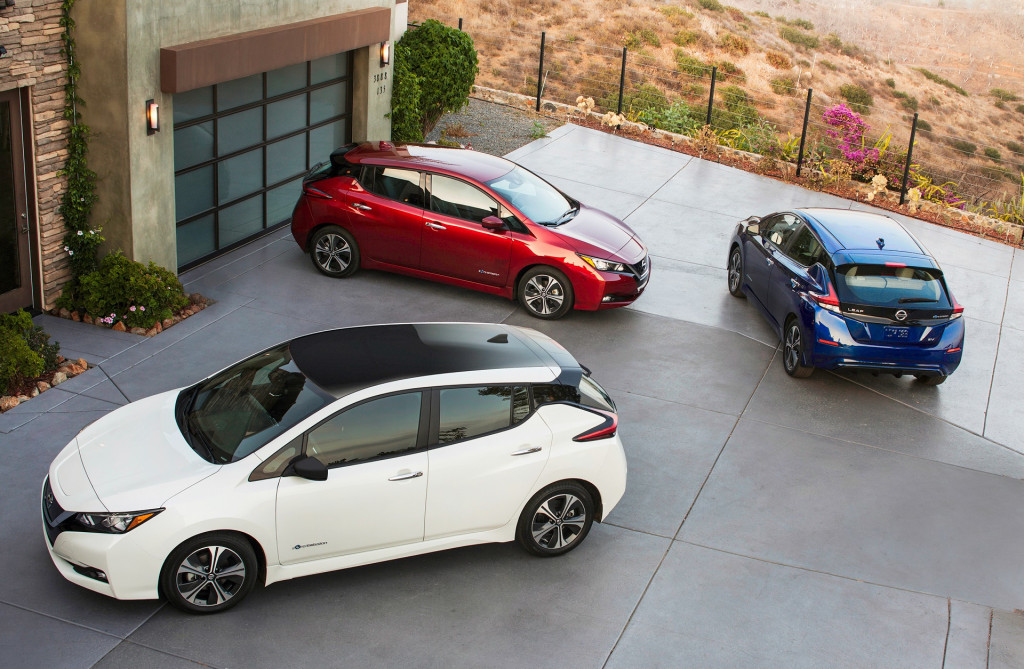The Nissan Leaf with a roughly 60-kilowatt-hour battery was expected to make its public debut at the LA Auto Show earlier this month. It didn’t.
That car is expected to appear “very soon,” perhaps at the 2019 Consumer Electronics Show to be held in Las Vegas next month.
DON'T MISS: Long-range Nissan Leaf missing from LA Auto Show
But we didn't arrive back entirely empty-handed on new insights about where the Leaf is headed. With that plus a fully electric compact crossover utility vehicle on the horizon—and more electric cars close behind it—we sat down with Dan Mohnke, Nissan’s senior vice president for sales and marketing, to find out what Nissan had learned about how to market plug-in vehicles, and how that might evolve once new products arrive.
We spoke with Chevrolet more than two years ago on the same topic. That brand’s answer at the time was that it would continue to look for Bolt EV and Volt buyers who were similar to those who had already bought its cars—hardly a recipe for growing volumes.
READ THIS: How GM plans to market Chevy Bolt EV electric car
Nissan’s Mohnke said the company had taken away several lessons from its seven-plus years of selling the Leaf in North America.
Range anxiety is real. A 74-mile range may suit Japanese or European drivers who travel shorter distances and have access to a comprehensive, reliable, safe, affordable network of mass transit options. It is not enough for U.S. drivers in dispersed suburbs, who probably need something like 200 miles or possibly a bit less.
The entire “customer journey” needs to be addressed. Not the routes driven, but the process of marketing to, educating, and partnering with buyers from their first Internet search through visits to the dealership, delivery of the car, education on how it works and how charging is done, and follow-up contacts. Nissan is now focusing heavily on the “customer journey” for all shoppers, but electric cars add several specific requirements that gasoline vehicles don’t, such as education about charging options.

2017 Nissan Leaf showing battery pack (Source: Nissan)
Different buyers want different vehicles. This should be obvious, but over the last seven years, the U.S. market has swung decisively away from passenger cars (sedans, hatchbacks) toward utility vehicles of all sizes. The Leaf, for all its advantages, is visually a compact five-door hatchback, and that segment is a non-starter for many buyers. Bring on the all-electric compact crossover with optional all-wheel drive!
Each market is different, and the pace of adoption varies a lot. California is known to be the nation’s friendliest market for electric cars. Marketing and dealer communications are very different there than in, say, the central states where trucks predominate and dealers may only have a single Leaf in stock—if that.
All that said, Mohnke expects the company to start to market the advantages of electric cars as cars more confidently than it has in the past.
ALSO SEE: Documents: 60-kwh Nissan Leaf pricing aligned with Chevy Bolt EV
Those include “taking the stress out of driving” through both electric cars’ quieter, smoother travel and power delivery and the company’s suite of active-safety systems that it calls “intelligent driving.”
Another is the pure “exhilaration” of driving an electric car. When pressed as to what exactly that meant, Mohnke noted drivers definitely see an electric car’s strong, smooth maximum torque from a standstill—and at legal speeds—as a benefit they enjoy. Which is to say, power. That can be stressed in ads, he suggested.

2018 Nissan Leaf
All of these benefits, he acknowledged, must be wrapped in ads that touch the emotions rather than being purely pragmatic and logical. Those arguments may be appropriate for some early adopters, especially engineers and tech-forward shoppers attracted by the image of an electric car.
Tuning in to the emotional
But car buying is a mix of the rational (seating capacity, body style, fuel efficiency) and the poorly understood emotional (what a vehicle says to the world about the owner). The latter, we agreed, is one of the things that makes the auto industry fascinating to cover and to work in. At the moment, Tesla sales are outpacing those of Nissan’s electric cars globally. But Mohnke is confident about the company’s electric-vehicle lineup for coming years.
“We will not be a laggard,” he concluded. “We will be a leader.”
Did we mention we’re waiting for that all-electric compact crossover with optional all-wheel drive?
Nissan provided airfare, lodging, and meals to enable Internet Brands Automotive to bring you this coverage of the event that didn’t actually happen.













